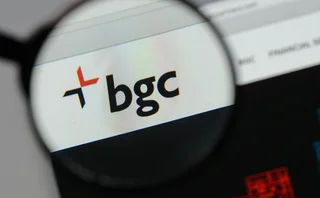
Subprime fallout: US passes lending reforms
The US House Committee on Financial Services has approved bipartisan mortgage reform legislation and anti-predatory lending practices
WASHINGTON, DC – In the wake of the subprime crisis, the House Committee on Financial Services has passed The Mortgage Reform and Anti-predatory Lending Act of 2007. The legislation creates a licensing system for mortgage loan originators, attaches limited liability to securitisation, creates new borrowing standards and increases customer protection – including the establishment of an Office for Housing Counselling.
The new licensing system for residential mortgage loan originators comes in response to public outcry over the irresponsible commission-based lending practices that sparked the subprime crisis. It means all lenders and individual employees responsible for issuing mortgages will now be registered.
The US government will create a Nationwide Mortgage Licensing System and Registry (NMLSR) that, together with federal banking agencies, will gather information from licence applicants – including results of written tests, personal histories and fingerprints. Any state that falls short of the standards will be subject to a backup licensing system from the Department of Housing and Urban Development (HUD).
New mortgage origination minimum standards tighten rules regarding a lender’s responsibility to provide the correct loans in an effort to eliminate predatory practices, and to increase disclosure and transparency to consumers and regulators, with a particular emphasis on the subprime sector.
The new standards also cover securitisation liability, adding responsibility to carry out due diligence to ensure loans conform to standards and assess the potential for damages to consumers.
Consumer protection for high-cost mortgages will expand, with APR and fee-trigger percentages lowered from 10% to 8% and 8% to 5% respectively. Requirements of pre-loan counselling have been introduced, while the financing of points and fees are prohibited. So are excessive fees for payoff information, modifications or late payments, as are practices increasing the risk of foreclosure – such as balloon payments, call provisions and encouraging a borrower to default.
An Office for Housing Counselling will also to be created within the HUD to provide counsel regarding home ownership and rental housing.
The Office will provide technical help and funding to state and local governments, and non-profit organisations, in setting up consumer education programmes. It will also require the certification of consumer computer programs for evaluating loan proposals, and limits the authorised appropriation for national public service multimedia campaigns for homeownership counselling services to $3 million until 2010.
The Office for Housing Counselling will also study and report to Congress on the root causes of the default and foreclosure of home loans.
Only users who have a paid subscription or are part of a corporate subscription are able to print or copy content.
To access these options, along with all other subscription benefits, please contact info@risk.net or view our subscription options here: http://subscriptions.risk.net/subscribe
You are currently unable to print this content. Please contact info@risk.net to find out more.
You are currently unable to copy this content. Please contact info@risk.net to find out more.
Copyright Infopro Digital Limited. All rights reserved.
You may share this content using our article tools. Printing this content is for the sole use of the Authorised User (named subscriber), as outlined in our terms and conditions - https://www.infopro-insight.com/terms-conditions/insight-subscriptions/
If you would like to purchase additional rights please email info@risk.net
Copyright Infopro Digital Limited. All rights reserved.
You may share this content using our article tools. Copying this content is for the sole use of the Authorised User (named subscriber), as outlined in our terms and conditions - https://www.infopro-insight.com/terms-conditions/insight-subscriptions/
If you would like to purchase additional rights please email info@risk.net
More on Risk management
One year on, regulators still want a cure for bank runs
Broad support for higher outflow assumptions on uninsured deposits, but that won’t save insolvent banks
Falling T2 balances bode well for eurozone’s stability
Impact of fragmentation would be less severe today than in 2010s, says Marcello Minenna
For a growing number of banks, synthetics are the real deal
More lenders want to use SRTs to offload credit risk, but old hands say they have a long road ahead
Did Fed’s stress capital buffer blunt CCAR?
Experts fear flagship test’s use as a capital top-up has undermined its role in risk management
How Ally found the key to GenAI at the bottom of a teacup
Risk-and-tech chemistry – plus Microsoft’s flexibility – has seen US lender leap from experiments to execution
Industry urges focus on initial margin instead of intraday VM
CPMI-Iosco says scheduled variation margin is better than ad hoc calls by clearing houses
Consortium backs BGC’s effort to challenge CME
Banks and market-makers – including BofA, Citi, Goldman, Jump and Tower – will have a 26% stake in FMX
Revealed: the three EU banks applying for IMA approval
BNP Paribas, Deutsche Bank and Intesa Sanpaolo ask ECB to use internal models for FRTB
Most read
- SG trader dismissals shine spotlight on intraday limit controls
- Basel Committee reviewing design of liquidity ratios
- Too soon to say good riddance to banks’ public enemy number one







